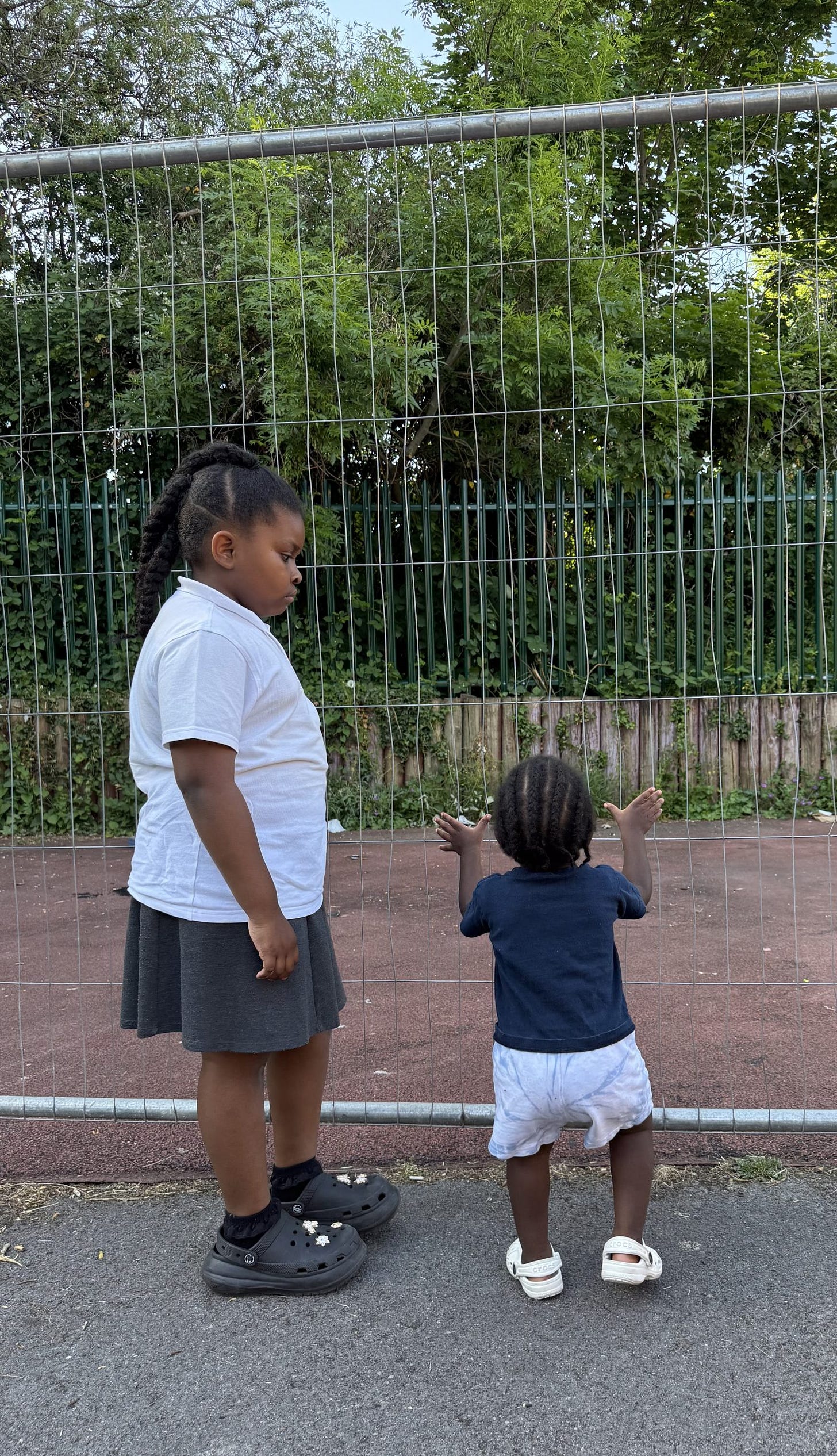SEND and Poorest Bristol: Collateral Damage in Bristol’s Broken Governance
In early 2024, three boys – Max, Mason and Darrian – lost their lives within the space of three weeks. A fourth young person suffered serious harm. Their deaths are the reason Bristol’s Thematic Local Child Safeguarding Practice Review into Serious Youth Violence was commissioned. The review exists because children died, and because others came close. It traces the conditions that left them vulnerable – poverty, exclusion, fractured systems – and it sets out in detail how those conditions were allowed to persist.
The story it tells is not one of tragic inevitability, but of choices made. Political choices, financial choices, governance choices. At the heart of it all sit two communities who have consistently been treated as expendable: children with SEND, and families in Bristol’s poorest neighbourhoods.
SEND: delays, punishment and neglect
The review makes clear what families have been saying for years: SEND in Bristol is not working. At the beginning of this year, over a thousand children were waiting for an Education, Health and Care Plan. Many were left waiting close to a year for assessments that are legally meant to be completed in 20 weeks. Only 3% of plans were made on time, far worse than the national average of 50%. Alongside the backlog, 276 children had no specialist school place at all.
Families told the review that schools too often responded to distress or changes in behaviour with fines, managed moves and exclusions, rather than recognising them as signs of vulnerability. That wider pattern was echoed in the lives of some of those later convicted for murder: Ryan Tolliver, 17 at the time, only began to learn to read and write in custody, while another, aged 15, was assessed as having the mental age of eight and a half after a childhood of neglect. These are not personal failings but the result of unmet special educational needs and absent social care. Trauma and neglect, left unaddressed, manifest in violent ways.
The deaths of Max and Mason
On 27 January 2024, Max Dixon, 16, and Mason Rist, 15, were stabbed to death in Knowle West by a gang of teenagers armed with machetes. Among those convicted in November 2024 were 45-year-old Antony Snook, who drove the group around that night; 18-year-old Riley Tolliver, whose illiteracy was only addressed in custody; and three boys aged 17, 16 and 15. What unfolded was not simply a crime of violence, but the culmination of years of neglect.
Max and Mason’s murders underscored what the review found about South Bristol: an area broadly White-British, scarred by intergenerational poverty, with weaker infrastructure and transport links that leave families isolated. Children told reviewers they struggled even to define “community,” and many said they felt safe nowhere beyond their front doors. What they wanted was provision close to home, but instead found themselves with nothing to do, nowhere to go, and no sense of belonging.
The death of Darrian
Just over two weeks later, on 14 February, 16-year-old Darrian Williams was chased through Rawnsley Park in Easton and fatally stabbed in the back. His murder highlighted another of the review’s findings: the risks facing young people in East-Central Bristol, where rival street groups – the so-called 2-4s and 1-6s, named after their postcodes – have created an environment of inter-generational conflict and retaliatory violence.
Although characterised as ‘urban street gangs’ professionals working with the communities described these children and young people as having the type of constrained choices that typify exploitation, with the children and young people effectively being ‘groomed’ into conflict and violence by the behaviours and culture created by the adults around them.
The review describes how younger generations of Black and Brown children in East Bristol have become normalised to this culture, drawn into racialised conflict shaped by racism, poverty and exclusion. Professionals told reviewers that Black boys in particular are more likely to be excluded from education, making them especially vulnerable to exploitation by peer groups and older figures.
Darrian was not in a gang, but was caught in the very dynamics the review identifies: street groups tied to geography, fractured schooling, and the absence of protective spaces for young people.
Paying for spying with SEND budgets
The failures in education and care did not happen in isolation. Families who tried to raise the alarm found themselves obstructed rather than supported. While children were waiting months for assessments and parents were struggling to hold services together, the council was directing its energy elsewhere – at monitoring those very parents.
When parents finally secured an independent inquiry into the SEND spying scandal, they were told it would be paid for directly from the SEND service budget. Families harmed by unlawful surveillance – some of whose children lost care packages as a result – are now funding the investigation into that harm at the expense of their children’s current support.
The scandal is made worse by who was targeted. Among those spied on primariy were officers of the Bristol Parent Carer Forum – themselves SEND parents, chosen to represent the community. Parent Carer Forums are not optional interest groups; they are recognised in law as the collective voice of parent carers, and local authorities and health bodies have a legal duty to work with them to improve services for disabled children and young people. By attempting to undermine the Forum and cutting its funding, the council not only harmed individual families but weakened the statutory mechanism designed to give parents a voice. Silencing that collective voice strips families of representation and damages the accountability that is supposed to protect SEND children.
Short breaks cut, pressures rise
The same approach can be seen in the council’s decision to cut statutory short breaks for SEND families. A 10% reduction in funding translated into a 14% reduction in actual services, with weekend provision particularly affected. These breaks are not extras; they are lifelines that keep families going and prevent collapse. Officers have admitted the cuts are likely to increase demand for EHCPs, piling even more pressure on an already broken system.
Families First: financial experiments on children
The council’s flagship Families First programme shows how these priorities are set. Branded as transformation, it is in fact a savings plan written around shaky data and untested assumptions. Independent auditors warned of flawed financial models, but the programme pressed ahead, including a £5.5m “saving” from stepping down a group of children in expensive placements – not because it was in their best interests, but because they represented a budget line.
Children reduced to entries in a spreadsheet: this is what happens when financial targets take precedence over welfare.

A pattern, not an accident
The deaths of Max, Mason and Darrian, and the serious harm to a fourth child, should have been a turning point. Instead, they stand as markers in a longer pattern of governance failure.
Children waiting nearly a year for support that should arrive in 20 weeks. Only 3% of EHCPs delivered on time. Families forced to fund an inquiry into the council’s own misconduct. A Parent Carer Forum spied on and undermined, despite its statutory role as the voice of SEND parents. South Bristol left to cope with deprivation while resources flow elsewhere. Black boys excluded from school in East Bristol, left vulnerable to postcode rivalries. And vulnerable children treated as cost savings in flawed financial experiments.
This is not an accumulation of oversights. It is the result of decisions taken by both Labour and Green administrations, decisions that have treated SEND children and Bristol’s poorest communities as collateral damage.
The review exists because Max, Mason and Darrian are no longer here to tell their stories. If their deaths are not to be followed by more names, the city must accept the truth of what this review has laid bare: these were not accidents, but choices. And those choices are indefensible.

